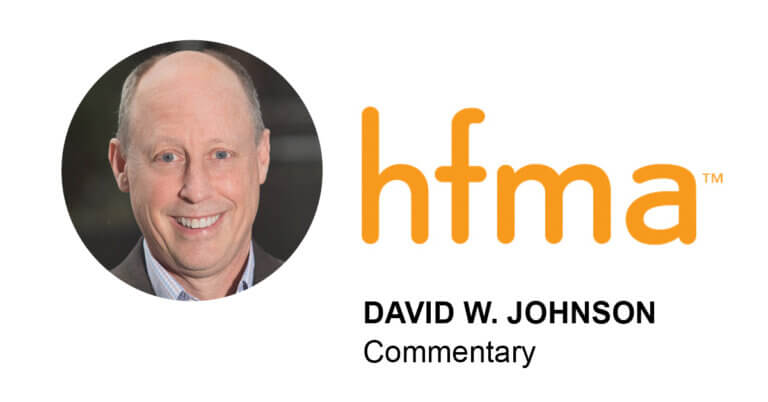July 9, 2024

Nobody Does It Better: Cain Brothers Nurtures Health Systems-PE Collaboration
Building on the success of last year’s inaugural event, Cain Brothers just hosted its second invite-only collaboration conference for health systems and private equity (PE) investors at the Grand Hyatt in downtown Nashville. Beginning on the evening of June 12 through mid-afternoon the next day, the health system-PE conference gathered 150 leaders from health systems, private equity firms and operating companies for incisive presentations, panel discussions, ample networking opportunities and one-on-one meetings too numerous to count.
This may be the healthcare industry’s most hands-on investment conference. Participants roll up their sleeves and engage in relationship building and exploration of novel business concepts. Energy and enthusiasm were high as industry participants rise to the challenge of reconfiguring care delivery to drive greater access and better outcomes at lower costs.
One attendee captured the conference’s essence in this post-conference note:
I don’t say it lightly when I share that this short, one-day conference may be the single most effective, relevant conference I can remember attending… Focused, high-quality attendees, user-friendly. The sessions were appropriate and succinct and the networking (and prioritization of it) was just right.
Cain Brothers Group Head Wyatt Ritchie welcomed attendees with the core observation that “it’s going to take a village” to assist health systems in developing the more affordable, transparent and consumer-centric delivery platforms demanded by the marketplace. Ritchie emphasized that PE firms’ capital, sector expertise and operating discipline make them logical development partners for health systems striving for sustainability and market expansion.
 Evidence of PE’s positive contributions to health systems is abundant. Dozens of health systems already operate successful joint ventures with PE firms across a broad spectrum of care modalities. Ohio Health, for example, reported at a recent investor conference that joint-venture relationships with PE firms account for one-third of the health system’s net revenues.
Evidence of PE’s positive contributions to health systems is abundant. Dozens of health systems already operate successful joint ventures with PE firms across a broad spectrum of care modalities. Ohio Health, for example, reported at a recent investor conference that joint-venture relationships with PE firms account for one-third of the health system’s net revenues.
While no conference occurs in a vacuum, increasing political opposition to PE involvement in healthcare shaped the tone and gave added weight to this year’s deliberations. On June 11, the day before the conference opened, U.S. Senators Elizabeth Warren and Edward Markey from Massachusetts introduced the Corporate Crimes Against Health Care Act of 2024. Their aim is to remove “corporate greed and private equity abuse” within U.S. healthcare.
The Act’s reach is expansive. It includes criminal sanctions, clawbacks, civil penalties, limitations on REIT financing, more ongoing disclosure for mergers and acquisitions (M&A) transactions and a mandated OIG on the harms caused by “corporatization” to the healthcare industry. Much of this political heat emanates from the recent Steward and Envision bankruptcies and the cyber-attack on Change Healthcare.
Rather than duck the politics, panelists leaned into the head winds and provided advice for addressing specific regulatory concerns. Not all PE firms are created equally. The PE sector has a wide range of skillsets, cultures, risk appetites, investment preferences and experience. For health systems, finding the right PE partners may be the most critical success factor when undertaking joint ventures.
Panelists stressed the importance of building relationships, undertaking diligence and developing trust. Too much portfolio leverage is a red flag. Using objective data to make investment decisions is paramount. Understanding “end markets” is critical to building business cases and allocating resources. In this sense, the hard work of collaboration on display inside the conference stood in stark contrast to the simplistic critiques of PE’s healthcare investments occurring in the political arena.
Despite PE’s mystique and mixed reputation, PE firms are simply in the business of developing businesses. As TowerBrook’s Ian Sacks stressed, “All we do is invest in people.” TPG Growth’s Zach Ferguson added that PE firms have “the gift of focus.”
While health system leaders must spread their focus broadly, their PE partners bring clarity and discipline to specific investments. This is particularly important for “horizontal” strategic investments that scale across regional and national markets. With an expanding universe of health system-PE joint ventures comes operating expertise and discipline. Ventures make fewer mistakes and respond with more resilience to market challenges.
For all the new political concerns, PE is already deeply integrated into the nation’s healthcare operations. As Roy Bejarano of SCALE Healthcare noted, over 150,000 physicians work for PE-owned medical service organizations (MSOs). There’s no turning back. There’s only moving forward.
Economic progress throughout human history has resulted through the development and execution of ever-more complex win-win arrangements between individuals and groups. Value creation is at the heart of market evolution. No industry requires incremental value creation more than healthcare.
Market fitness is the ultimate judge of all investments. By that measure, many more health system-PE joint ventures are succeeding than failing. Cain Brothers and the event’s sponsoring partners (K&L Gates, SCALE Healthcare, Sheppard Mullin, TowerBrook and TPG Growth) want to ensure that constructive trend continues. Toward that end, we’ll see you next year in Nashville at the 2025 Collaboration Conference.
Disclaimer: The information contained in this report was obtained from various sources, including third parties, that we believe to be reliable, but neither we nor such third parties guarantee its accuracy or completeness. Additional information is available upon request. The information and opinions contained in this report speak only as of the date of this report and are subject to change without notice.
This report has been prepared and circulated for general information only and presents the author’s views of general market and economic conditions and specific industries and/or sectors. This report is not intended to and does not provide a recommendation with respect to any security. Cain Brothers, a division of KeyBanc Capital Markets (“Cain Brothers”), as well as any third-party information providers, expressly disclaim any and all liability in connection with any use of this report or the information contained therein. Any discussion of particular topics is not meant to be comprehensive and may be subject to change. This report does not take into account the financial position or particular needs or investment objectives of any individual or entity. The investment strategies, if any, discussed in this report may not be suitable for all investors. This report does not constitute an offer, or a solicitation of an offer to buy or sell any securities or other financial instruments, including any securities mentioned in this report. Nothing in this report constitutes or should be construed to be accounting, tax, investment or legal advice. Neither this report, nor any portions thereof, may be reproduced or redistributed by any person for any purpose without the written consent of Cain Brothers and, if applicable, the written consent of any third-party information provider.
“Cain Brothers, a division of KeyBanc Capital Markets” is a trade name of KeyBanc Capital Markets Inc. Member FINRA/SIPC.
KeyBanc Capital Markets Inc. and KeyBank National Association are separate but affiliated companies. Securities products and services are offered by KeyBanc Capital Markets Inc. and its licensed securities representatives. Banking products and services are offered by KeyBank National Association. Credit products are subject to credit approval. Copyright © 2024 KeyCorp.




